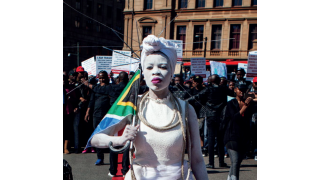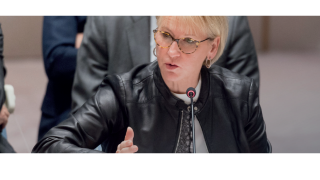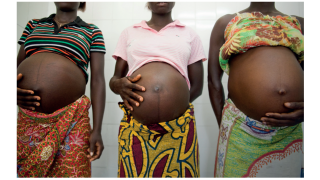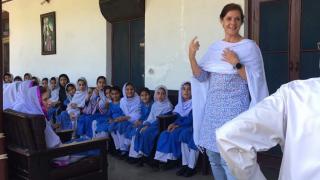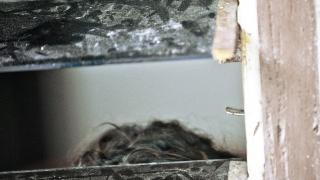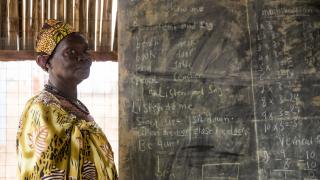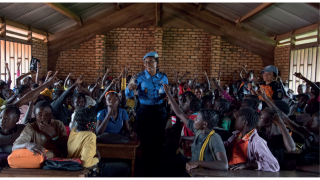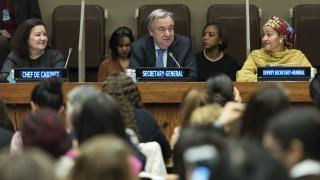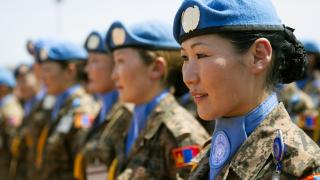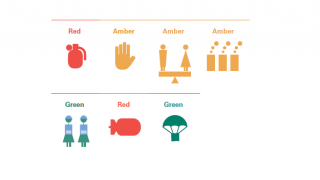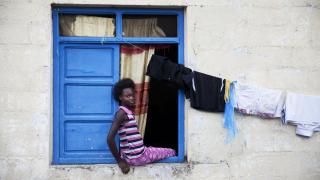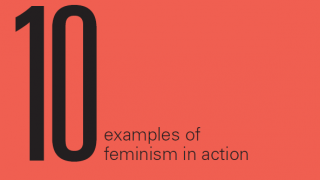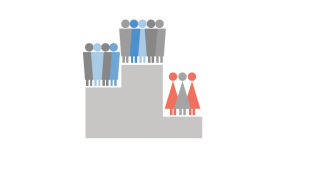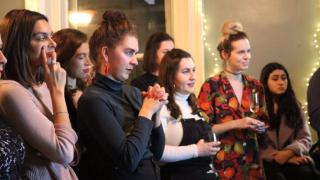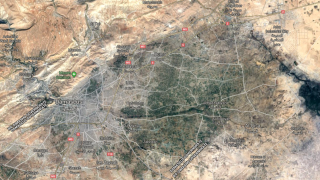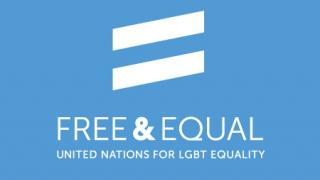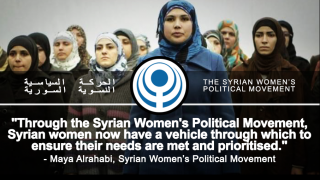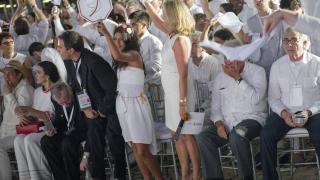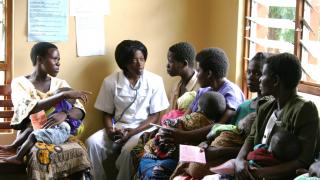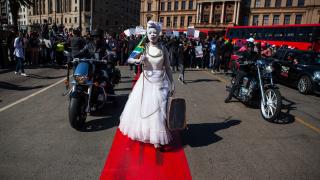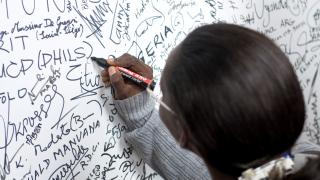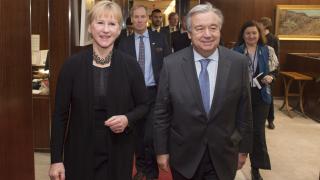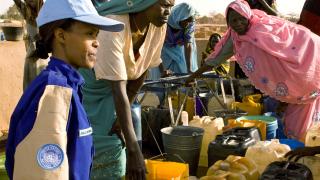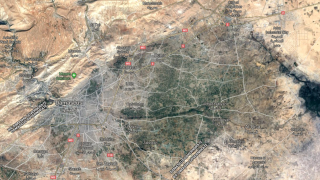
In the early hours of the morning, a woman waits in line at the door to a cellar labelled “Cancer Centre.” All around, the buildings have been reduced to rubble. This area has been the frequent target of bombs and missiles because of its high concentration of medical facilities. The woman is in her fifties, the frailty of her body hidden by a loose dress. Beside her stands another woman, her clothes worn out from having walked a long distance.
She has come here on foot from another part of Ghouta to visit the clinic, and she is exhausted from having carried bags of clothes which she has knitted herself and which she intends to sell. A small child stands behind her, tugging at her dress. I later learn from her that he is her grandson whom she has been raising since his family was killed in an air raid which targeted their home. All around them stand women whose faces make them seem older than they really are, their youthfulness having fallen victim to the military siege and the scarcity of medical resources.
The woman in her fifties walks up to me and asks me what I am doing here. I tell her that I am a journalist and that I am here to conduct an interview with the doctor. Upon hearing this, she takes my hand in hers and, holding it tightly: “Would you please do more of these interviews for us? Perhaps they will help get us more medicine.” I learn from her that she has a daughter who will be eighteen in the spring and who developed blood cancer after undergoing a Caesarean section. She tells me that before the siege the medicine for such an infection had been plentiful and that her daughter’s condition had been improving. Now she is unsure what her fate will be.
A secretary opens the door to the cellar. The smell of dampness and mold fills the air. “The clinic itself poses a health risk”, I think to myself. One of the sick women has been pleading with the doctor, begging her to treat her brother, saying: “He is the breadwinner of the family and he has children. His life is more important than mine.” The doctor raises her head, her arms crossed and her eyes filled with tears, and says: “all of your lives are equally important.”
In my discussion with the doctor, Wissam Muhammad, an old friend of mine, she laments the deterioration of the medical situation, which, she believes, has had a disproportionate effect on women. She says this is due to the ongoing lack of antibiotics, sedatives, sterile surgical implements, contraceptives and female regulators. She notes that United Nations convoys sometimes bring in women’s medical supplies but that they are barely enough to stock one pharmacy. Ultimately she estimates that they benefit no more than five percent of the population.
I sensed the great burden of responsibility which rests upon her shoulders, her being the only oncologist. This is especially so as the number of women suffering from cancer has reached 700, 300 suffering from breast cancer. According to the center’s documentation, the number of cases is increasing dramatically. Part of what is making the situation so dire is the drain in resources that has occurred as a result of the siege. Many of the women who were undergoing treatment before the siege are no longer able to receive the medication they need.
So far in the siege 27 of the patients have died of cancer, these include 11 women and seven children. What I find particularly tragic are the deaths that could have been prevented had the necessary medication not been stashed away in Damascus in the hands of the regime.
As a result of the lack of female medical personnel, Dr. Wissam and a number of other doctors have had to transform their clinics to also cover the fields of internal medicine and gynecology; in addition to making field visits to medical facilities all around Ghouta.
She also told me about dangerous uterine infections and which can lead to septic shock or death. The primary cause of such infections is the widespread contamination of water which has resulted from the destruction of the local infrastructure, the difficulty of sterilisation and the loss of necessary medicine for fighting such infections.
This dire situation especially affects pregnant women and their unborn children. There are many cases of women suffering from malnutrition and a compromised immune system. This can cause a woman’s teeth to fall out. Moreover, the draining of nutrients from the woman’s body can cause the foetus to no longer grow. This situation results in a higher percentage of miscarriages, birth defects, and stillbirths.
This situation has created a challenge for international organisations and the United Nations in fulfilling their responsibility to protect civilians. Security Council resolution 2254 demanded that roads must be opened to allow the necessary aid to enter. But action is needed to enforce these demands and to go further.
For example, there is a need for the international community to intervene to protect those civilians who are allowed to leave in order to seek treatment without fear of arrest, disappearance or murder. Ghouta's women, particularly those who are pregnant, need special care, medical equipment, mobile medical facilities and patient transport. Medical personnel and their vehicles should receive international protection and any attempts to attack them should be treated as criminal acts, regardless of the pretext under which they may have been carried out.
The Syrian regime targets medical facilities. Therefore, a solution to peace in Syria cannot be implemented unless the international community works to protect all medical personnel. And most importantly we need today is to lift the siege and open the roads, so that we can solve our problems for ourselves.
Photo: Ghouta, once an oasis, still stands out from the air, but is no longer a place of refuge. Credit: Google maps


